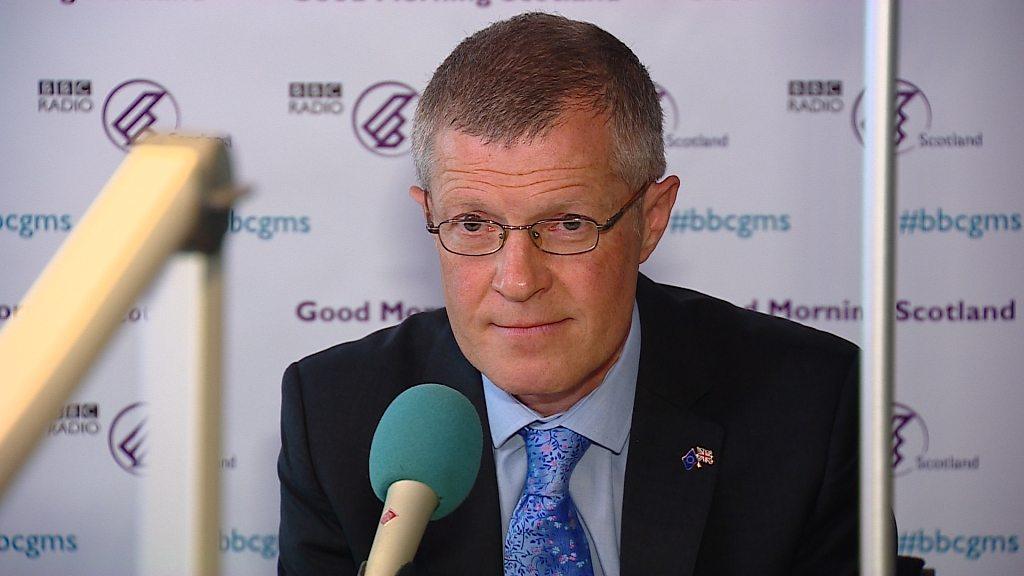General Election 2017: Lib Dems 'not inconsistent' on referendums
- Published
- comments
Willie Rennie says his party's view on a second Brexit vote does not conflict with its opposition to another referendum on Scottish independence
There is no inconsistency in supporting a second referendum on Brexit but not on independence, the Scottish Lib Dem leader has insisted.
The Liberal Democrat manifesto says the British people should be offered a vote on the final deal to leave the EU.
But the party is firmly opposed to another referendum on whether Scotland should be independent.
Willie Rennie said people knew what they were voting for when they rejected independence in 2014.
Speaking on BBC Radio's Good Morning Scotland programme, the Scottish Liberal Democrat leader said: "What we are saying with the Brexit vote is that it should be the first referendum on the deal.
"When we see the details the British people should have the final say on something so monumental.
"To be fair to the SNP in the 2014 referendum they produced a White Paper - it was repetitive, it was a bit boring - but people knew what they were rejecting when they rejected it.
"We did not have a White Paper in the European referendum last year so therefore it would only be right for when that detail is forthcoming for the British people to sign it off."
He said the Conservatives, led by Theresa May, were "pursuing the extreme, hardest Brexit you could possibly imagine".
"I don't think that's what people really voted for," he said.
"That's why I think the British people, not just Theresa May, not just the MPs, not just the Conservatives, should decide on whether that deal is good enough or not.
"Because the Conservatives will wave it through no matter how bad it is for our country, for jobs, for the NHS."
'Regulate cannabis'
Mr Rennie also said that the Liberal Democrats supported "radical" reform of the United Kingdom constitution to create a federal UK.
And he defended the party's stance on legalising cannabis.
He said: "What we want to do is separate cannabis from the really strong, hard and dangerous drugs that exist in the country.
"We need to regulate cannabis so that we can control the strains that exist."
The Liberal Democrat's UK manifesto set out its policy on cannabis on Wednesday. The party would:
Bring in a legal, regulated market for cannabis
Introduce limits on potency and permit cannabis to be sold through licensed to over-18s
End imprisonment for possession of illegal drugs for personal use
Mr Rennie later told BBC Scotland's Kaye Adams programme that he had smoked cannabis in the past but does not any more, adding: "It may look like it, but I don't".

What have Scotland's leaders been saying?
In a series of interviews on BBC Radio Scotland's Good Morning Scotland programme, each main party leader made their campaign pitch ahead of the 8 June election.
Nicola Sturgeon - Scottish National Party
Nicola Sturgeon says a vote for the SNP would strengthen her hand in the Brexit negotiations
Nicola Sturgeon has said a vote for the SNP would strengthen Scotland's hand over Brexit and allow her to argue for a seat at the negotiating table. The Scottish government wants Scotland to remain in the EU - and in particular the single market. Ms Sturgeon told the BBC: "What I am saying in this election is that we have an opportunity, by how we vote, to give those proposals democratic legitimacy. And, by voting for the SNP, to give me the ability to strengthen Scotland's hands in those [Brexit] negotiations, get a seat at the negotiating table and argue for Scotland's place in the single market."
Kezia Dugdale - Scottish Labour
Kezia Dugdale says the general election will be a success for Labour despite claims from Unite leader Len McCluskey
The leader of Scottish Labour, Kezia Dugdale, has insisted that she thinks her party can win next month's general election. She said people across Scotland were tired of politics in Scotland being dominated by the constitution. She told the BBC: "What I am saying clearly is that with Labour you get a clear promise of opposition to independence and an independence referendum."
Ruth Davidson - Scottish Conservative
Ruth Davidson said Scotland needed to have an economy that was attractive
Scottish Conservative leader Ruth Davidson said there were issues around why Scotland appeared to be "uniquely unattractive" to immigrants. She told BBC Radio's Good Morning Scotland programme that being the "highest taxed part" of the UK disadvantaged the country. She added: "I have my own theories about this in terms of the fact that we are the highest taxed part of the UK, the fact that we have an economy that is shrinking not growing when the rest of the UK economy is growing."
- Published17 May 2017
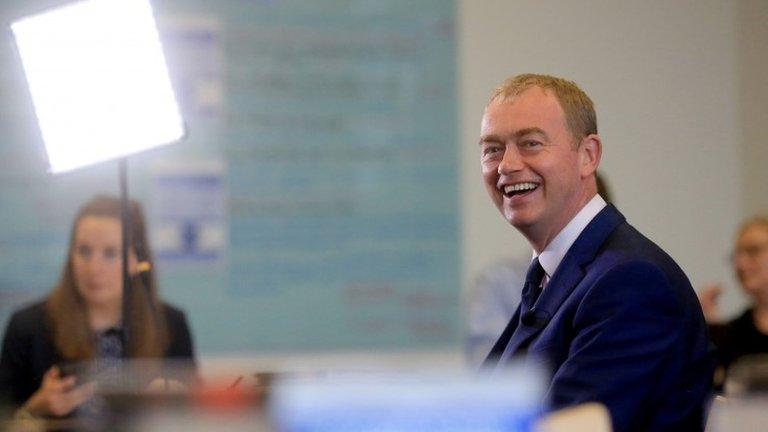
- Published17 May 2017
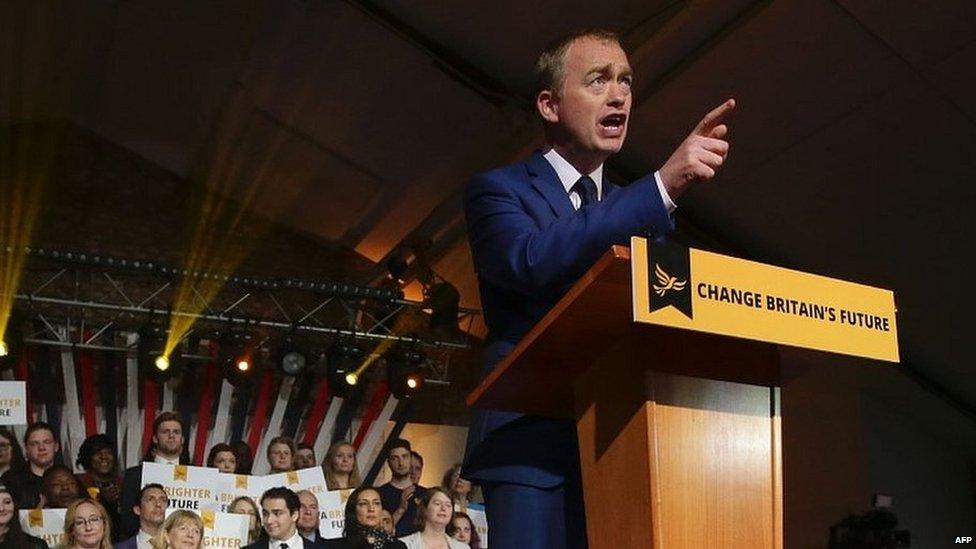
- Published15 May 2017
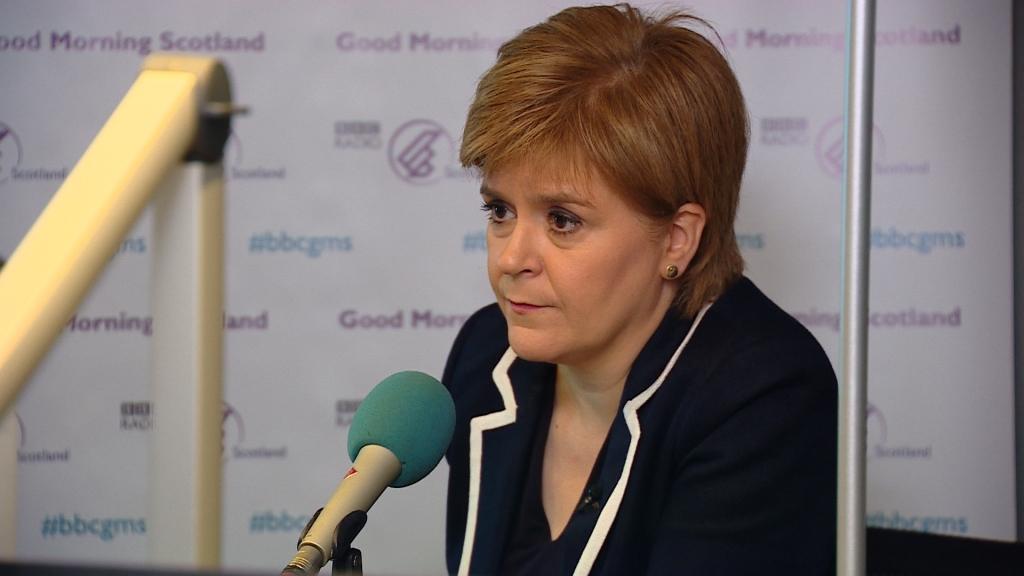
- Published17 May 2017
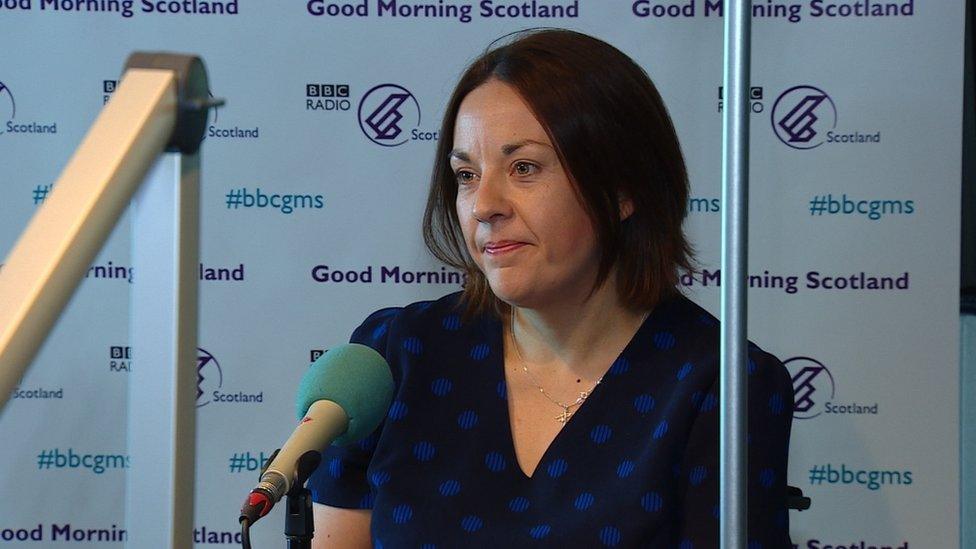
- Published18 May 2017
